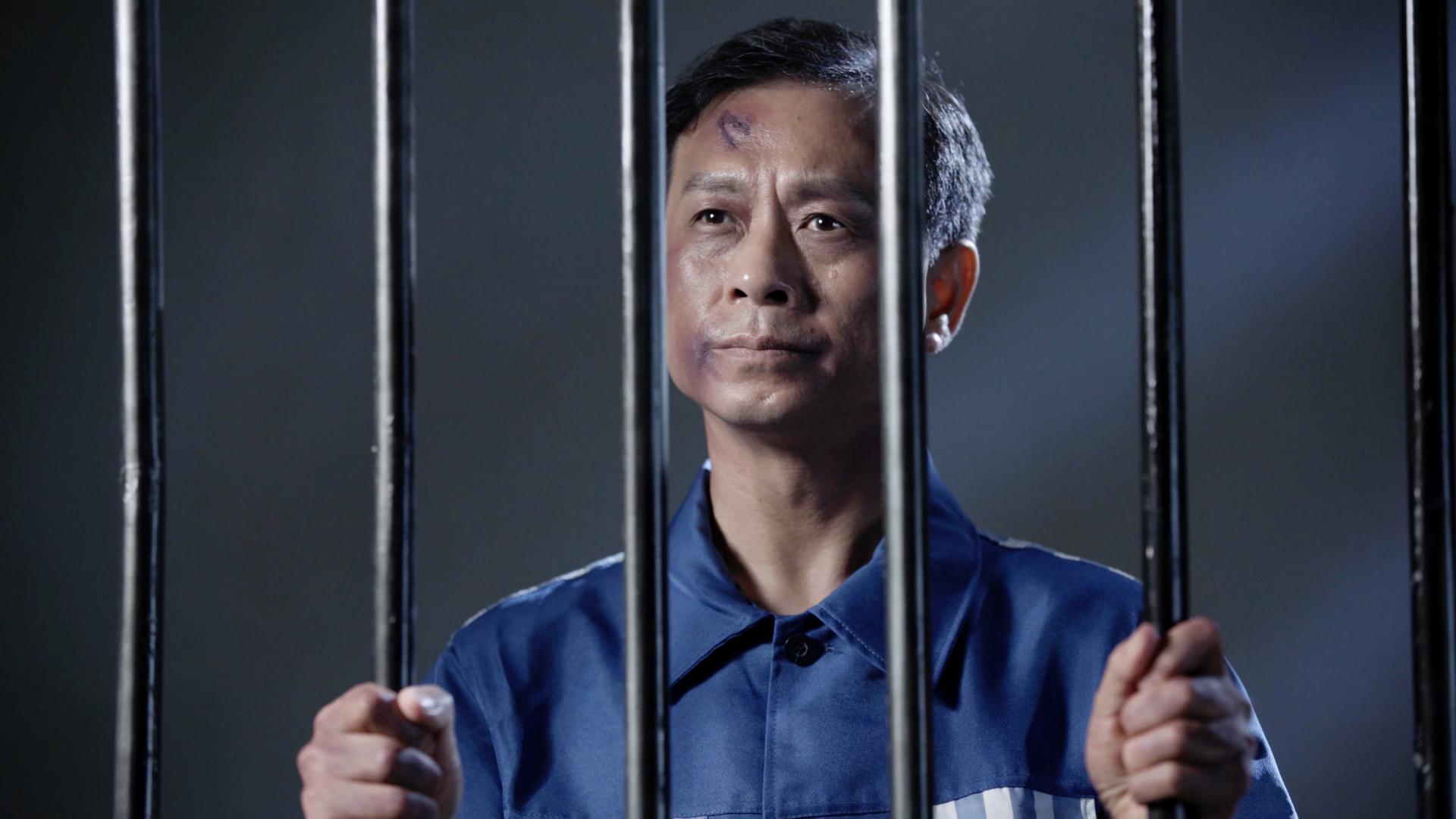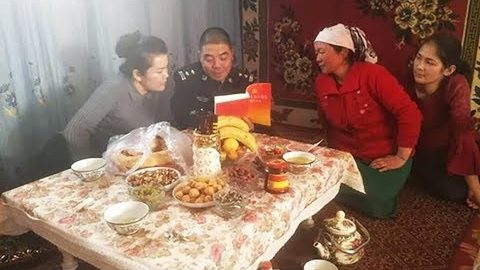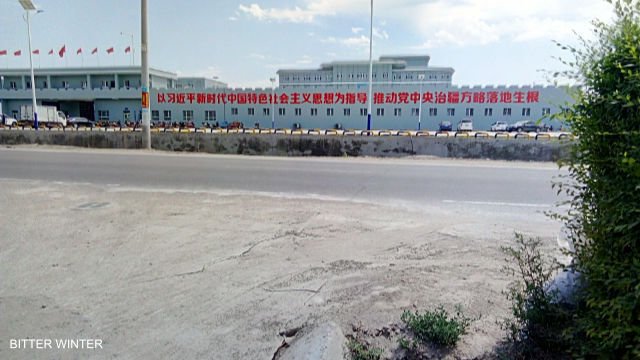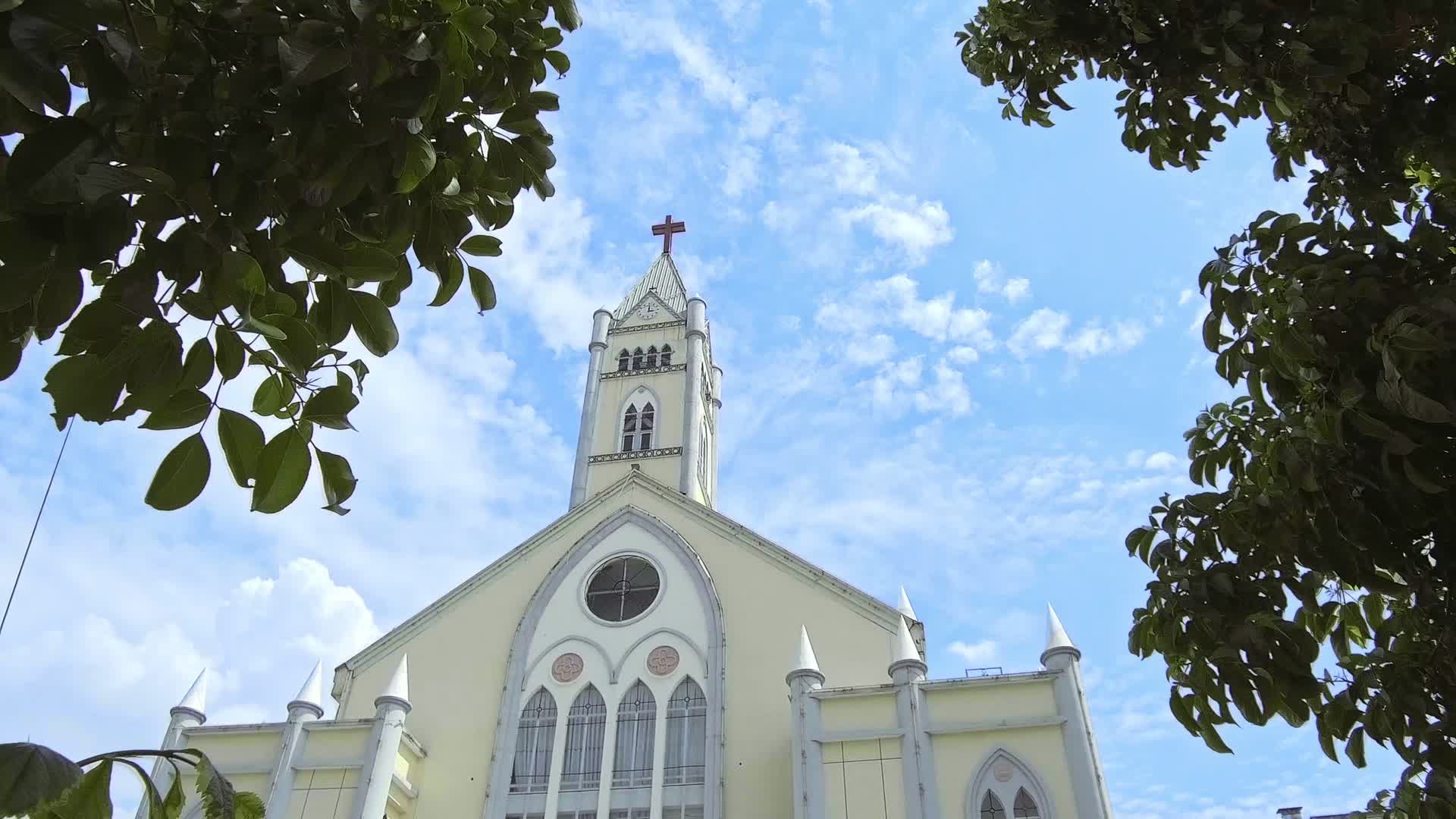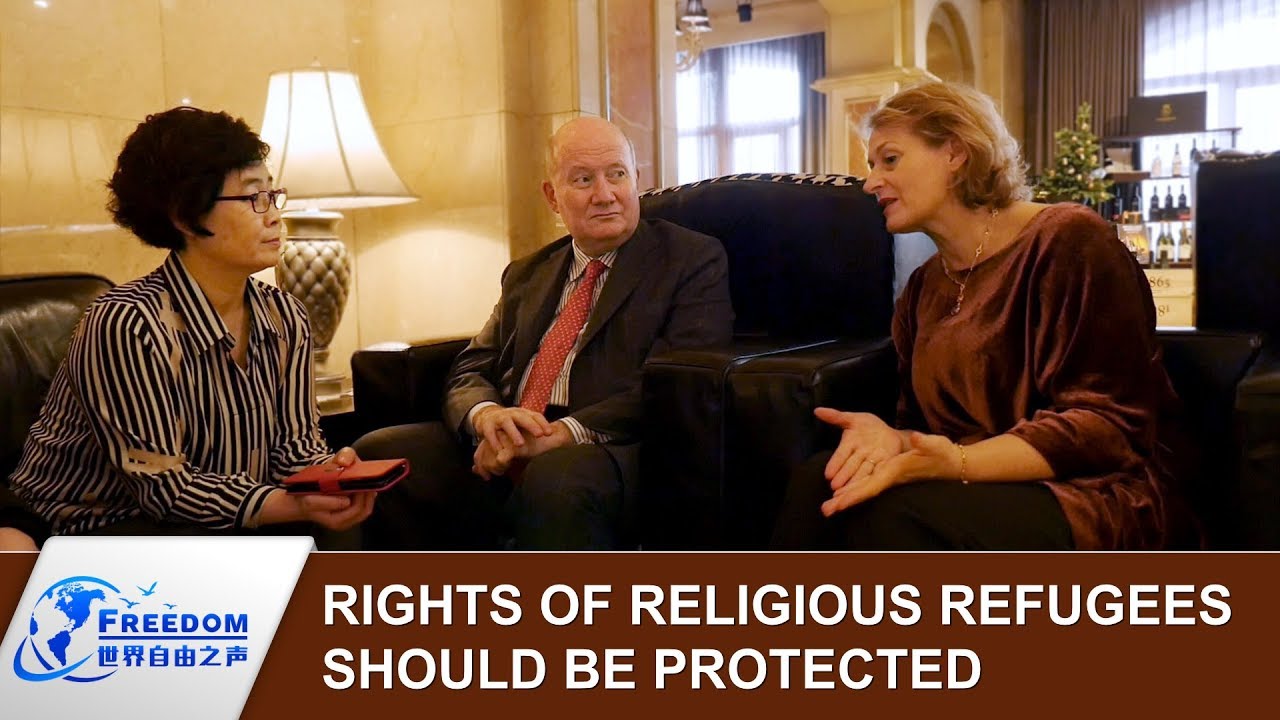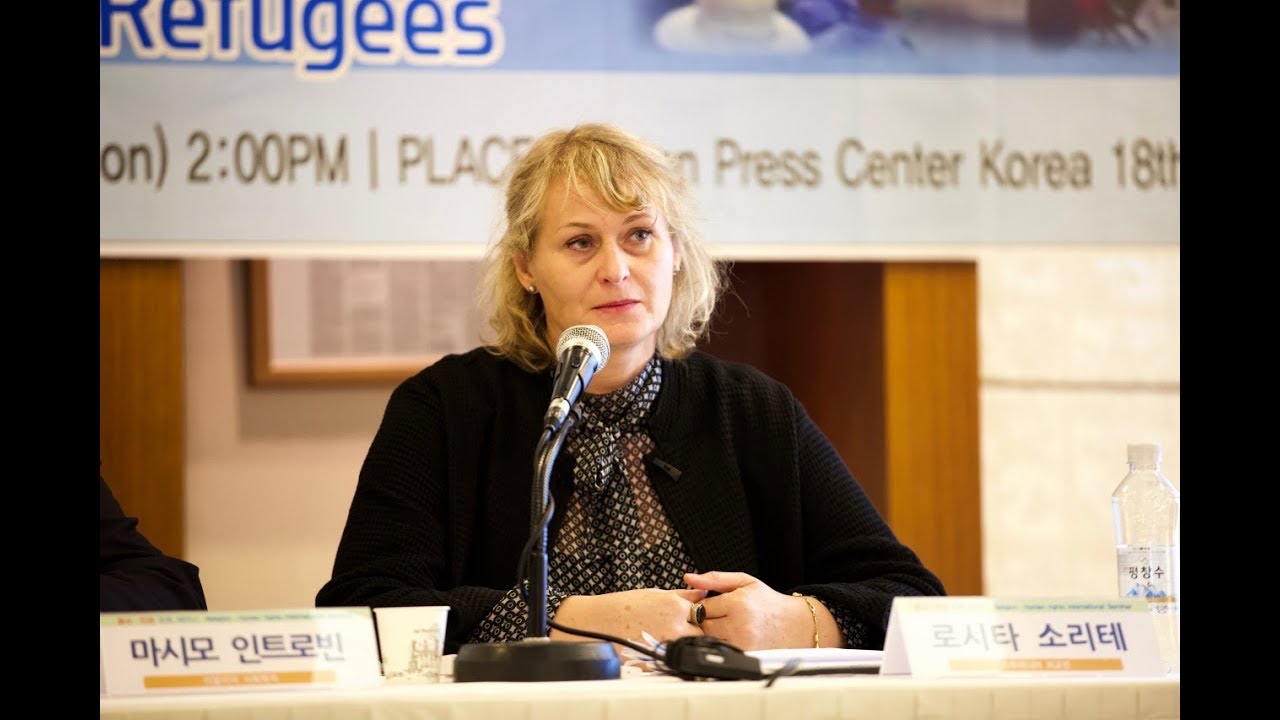New York Times Beijing bureau chief Steven Lee Myers (C) speaks with other journalists after the daily Foreign Ministry briefing in Beijing which announced China it would expel American journalists from three major US newspapers, on March 18, 2020.
China is getting ready to expel at least 13 U.S. news correspondents working in the country amid growing bilateral tensions with Washington over press freedom and visas for journalists.
The Foreign Correspondents’ Club of China was strongly critical of the announcement by the country’s foreign ministry in the early hours of Wednesday local time that U.S. nationals working for three major U.S.newspapers in China would have to hand over their press credentials within 10 days.
“The FCCC deplores the cancellation of reporting credentials for American journalists with three U.S. newspapers, an action that will affect at least 13 of our colleagues, a group of talented and dedicated professionals,” the club said in a statement carried on its Twitter account.
“The FCCC also deeply regrets that authorities in Beijing have taken the further step of banning affected journalists from reporting in Hong Kong and Macau.”
It said the total number of affected journalists at The New York Times, The Wall Street Journal and The Washington Post could be higher, depending on how broadly the Chinese authorities implement the decision.
“Their imminent banishment from journalism in China diminishes us in number and in spirit, though not in our commitment to vigorously cover China,” the FCCC said, adding: “There are no winners in the use of journalists as diplomatic pawns by the world’s two pre-eminent economic powers.”
Dean Baquet, executive editor of the Times, called on the Chinese and American governments to move quickly to resolve the dispute.
“The health and safety of people around the world depend on impartial reporting about its two largest economies, both of them now battling [the coronavirus] epidemic,” he said, in comments reported by the Associated Press.
Erosion of ‘One Country, Two Systems’
The Foreign Correspondents’ Club of Hong Kong said it is “alarmed” at the announcement that U.S. nationals at the three newspapers will be banned from working as journalists in Hong Kong, given that Hong Kong has its own system under which press freedom is a right according to the law.
“Under the Basic Law, all decisions about employment visas for foreign nationals in Hong Kong, including journalists, have been made independently by the Immigration Department,” the FCC said in a statement.
“If that system has changed, it would represent a serious erosion of the One Country, Two Systems principle,” it said, referring to the arrangement by which Hong Kong would maintain its traditional freedoms of expression and association, as well as judicial independence, following the 1997 handover to Chinese rule.
“The Hong Kong government must immediately clarify the situation and must immediately and without reservation provide assurances that foreign journalists working in Hong Kong and those applying to work in Hong Kong will continue to be issued employment visas without interference from the Chinese government,” the FCC said.
Pro-democracy lawmakers in the city said the move could deal a death blow to Hong Kong’s status as a separate entity from mainland China, upon which its international status as a separate trading port is based.
“If Beijing is unabashedly banishing foreign journalists, then it is effectively announcing the death of One Country, Two Systems,” Civic Party lawmaker Claudia Mo told reporters.
“Immigration should be a matter for the Hong Kong government … according to the Basic Law,” Mo said, referring to Hong Kong’s mini-constitution. “Now it is being subjected to direct orders from Beijing about who has to leave and who is to be allowed in.”
“In including Hong Kong in its retaliatory measures, Beijing is signaling to the whole world that it doesn’t care about Hong Kong any more.”
Reuters quoted senior foreign diplomats and an opposition politician as saying that officers from the People’s Armed Police, China’s top internal security force, – joined Hong Kong police on the frontlines to observe anti-government protests last year.
The PAP presence in Hong Kong was increased to as many as 4,000 personnel, several diplomats told the new agency.
Responding to questions from Reuters, the Chinese Defence Ministry said the PAP was not stationed in Hong Kong, while a Hong Kong police spokesman said they “stress that there is no such visit or observation by any members of the mainland law enforcement agencies”. Chinese officials did not respond.
Harsher crackdown underway
The recent announcement will see more foreign journalists expelled from China than in all the years since President Xi Jinping took power in 2013.
Until now, nine journalists have been forced to leave the country because the authorities declined to renew their visas.
But the FCCC said that there have been signs that a harsher crackdown on journalists is under way since the beginning of 2019, when the authorities began issuing visas of six months or less after decades of renewing them for a year at a time.
It linked the move to a propaganda offensive by the ruling Chinese Communist Party under President Xi, who has pledged to tell “the China story” as written by his administration around the world.
“By expelling journalists and keeping others in a state of visa uncertainty, China is overtly using its powers in an attempt to influence overseas news coverage, by punishing those who publish information authorities see as unfavorable and wish to keep quiet,” the FCCC said.
Beijing is increasingly making its influence felt in European and North American countries, through the manipulation of information and foreign institutions, U.S. politicians and commentators have warned.
According to the media watchdog Freedom House, the Chinese government in 2017 accelerated a decade-long expansion in the regime’s ability to shape narratives about China around the world.
Citing “new and more brazen tactics” by Chinese diplomats, state-owned news outlets, and organizations run by the Chinese Communist Party’s United Front groups, the organization found that Chinese state media content now reaches hundreds of millions of television viewers, radio listeners, and social media users abroad, many of whom don’t know where the content came from.
Freedom House has also warned that journalists, news consumers, and advertisers around the world are increasingly being subjected to intimidation or censorship of political content that Beijing doesn’t like.
Meanwhile, foreign correspondents working in China are subject to surveillance and government pressure in an environment of extreme hostility toward the types of factual reporting Chinese authorities claim to welcome, the FCCC said.
“Such conduct is as unacceptable as it is longstanding,” it said.
State media in focus
Foreign ministry spokesman Geng Shuang described the move as “necessary countermeasures that China is compelled to take in response to the unreasonable oppression the Chinese media organizations experience in the U.S.”
“If the United States insists on walking farther down the wrong path, China will be forced to take further countermeasures,” Geng told a regular news briefing in Beijing.
The expulsion of U.S. journalists comes after Washington designated five Chinese state-run media organizations as representatives of a foreign government, and was intended as a direct retaliation for that decision, the foreign ministry said.
The U.S. State Department said it would now be regarding five Chinese state-run media organizations as foreign missions, meaning that they are representatives of their country’s government.
Xinhua News Agency, CCTV’s global network CGTN, China Radio International (CRI), the China Daily’s U.S. distribution arm and Hai Tian Development, which distributes Chinese Communist Party newspaper the People’s Daily in the U.S had their status changed because they are directly under the control of the Chinese government, officials said at the time.
Xinhua reports directly to China’s cabinet, the State Council, while CGTN and CRI are part of a state-owned entity, the China Media Group.
The China Daily is owned by the Chinese Communist Party’s propaganda department, while the People’s Daily is the official mouthpiece of China’s ruling party.
The organizations are now required under U.S. law to notify the authorities of all of their personnel on U.S. soil, and to update the Office of Foreign Missions of any personnel changes, similar to the requirements for embassies and consulates. Any property held by the organizations must also be reported.
In response, Beijing imposed similar requirements on five U.S. media organizations: the Voice of America (VOA), The New York Times, The Wall Street Journal, The Washington Post and Time magazine, requiring them to provide information in writing about their staff, finances, operations and real estate held in China.
The foreign ministry said U.S. journalists would now also be subjected to similar visa and other administrations placed on Chinese journalists in the U.S.
Reported by Ng Yik-tung, Man Hoi-tsan, Tseng Yat-yiu and Sing Man for RFA’s Cantonese and Mandarin Services. Translated and edited by Luisetta Mudie.
Source: Copyright © 1998-2016, RFA. Used with the permission of Radio Free Asia, 2025 M St. NW, Suite 300, Washington DC 20036. https://www.rfa.org.



